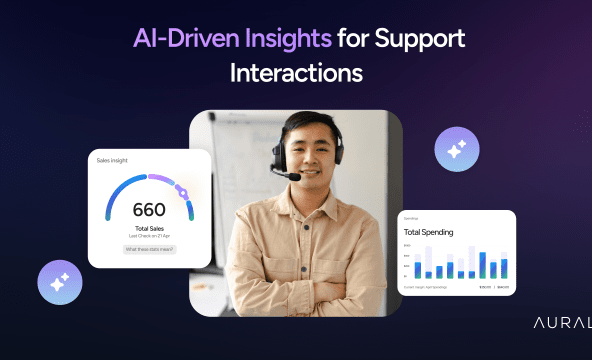AI-driven decisions
AI-driven decisions refer to the use of artificial intelligence (AI) technologies to automate, optimize, and enhance decision-making processes across various business functions. By leveraging machine learning, data analytics, and automation, AI can analyze large volumes of data, recognize patterns, and make predictions that enable more informed and accurate decisions in real-time.
One of the key benefits of AI-driven decisions is the ability to process vast amounts of data quickly and efficiently. AI systems can analyze structured data (such as sales figures and customer behavior) and unstructured data (such as social media content and customer feedback) to uncover insights that would be difficult or time-consuming for humans to identify. This capability allows businesses to make decisions based on the most up-to-date information available, improving their agility and responsiveness to market changes or customer needs.
For example, in customer service, AI-driven decisions can help streamline support operations by automatically routing customer queries to the appropriate agent or even providing real-time assistance through AI-powered chatbots. These AI systems can analyze previous interactions, customer profiles, and issue types to determine the best course of action, ensuring faster and more accurate responses. AI can also continuously learn from each interaction, improving its decision-making over time to provide more personalized and effective support.
In marketing, AI-driven decisions are revolutionizing how businesses target and engage customers. By analyzing customer data and behavior patterns, AI can predict the best times to reach customers, the types of content they will respond to, and the products or services they are most likely to purchase. This enables businesses to create highly personalized marketing campaigns that are more likely to resonate with their audience, increasing conversion rates and customer retention.
AI-driven decisions also play a significant role in supply chain management and inventory optimization. By analyzing historical sales data, current demand trends, and external factors (such as weather or economic conditions), AI can help businesses forecast demand more accurately, optimize inventory levels, and improve logistics operations. This leads to reduced stockouts, minimized waste, and improved supply chain efficiency.
In finance, AI-driven decisions are transforming how organizations assess risks, detect fraud, and make lending decisions. AI systems can analyze transaction data in real-time to identify unusual patterns, flagging potential fraudulent activity before it escalates. Similarly, AI can be used to assess the creditworthiness of loan applicants by analyzing their financial history, credit scores, and other relevant data, making lending decisions faster and more accurate.
AI-driven decisions can also help businesses improve employee performance and optimize human resource management. By analyzing data from employee performance reviews, engagement surveys, and other sources, AI can provide insights into which employees are most likely to succeed in specific roles, helping HR teams make more informed hiring decisions. Additionally, AI can identify skill gaps and recommend development opportunities to ensure that employees are equipped to meet business needs.
The ability of AI to continuously learn from data and improve its decision-making process is one of its most powerful features. Machine learning algorithms allow AI systems to refine their models over time, making decisions even more accurate and efficient as new data is introduced. This continuous learning process ensures that AI-driven decisions remain relevant and effective as businesses evolve and market conditions change.
AI-driven decisions also help organizations scale operations while maintaining high levels of accuracy and consistency. By automating routine decision-making tasks, AI frees up human resources to focus on more complex and strategic challenges. This can result in cost savings, improved efficiency, and better overall performance across the organization.
However, while AI-driven decisions offer numerous benefits, businesses must ensure that their AI systems are transparent, ethical, and aligned with regulatory standards. It’s crucial to train AI models on diverse and unbiased datasets to prevent biased decision-making that could disadvantage certain groups of people. Additionally, businesses must maintain human oversight to ensure that AI-driven decisions align with organizational goals, values, and ethical considerations.
In conclusion, AI-driven decisions are transforming the way businesses operate by providing faster, more accurate, and data-driven insights. Whether in customer service, marketing, supply chain management, finance, or human resources, AI-driven decisions enable organizations to make smarter choices, improve efficiency, and enhance customer satisfaction. However, businesses must also be mindful of the ethical implications and maintain human oversight to ensure that AI-driven decisions are transparent, fair, and aligned with business objectives. As AI continues to advance, its potential to revolutionize decision-making processes will only grow.

- Articles
-
 Amy
Amy
- 6 min read
